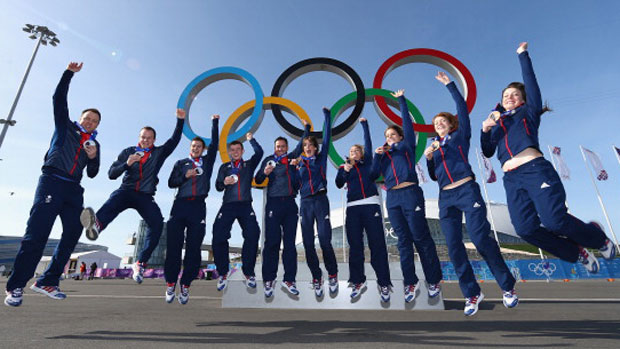Winter Olympics: do four medals make Sochi a success?
More money for winter sports, but what's the point of in funding events only a few can take part in?

A free daily email with the biggest news stories of the day – and the best features from TheWeek.com
You are now subscribed
Your newsletter sign-up was successful
THE Sochi Winter Olympics drew to a close on Sunday, with Team GB celebrating its most successful Winter Games since the event was first held in 1924. Great Britain won four medals, equalling its haul of 90 years ago, and the achievement is likely to prompt increased investment in winter sports. Lizzy Yarnold won gold in the skeleton event, the male curling team won silver, their female counterparts took bronze and snowboarder Jenny Jones got the ball rolling with bronze in the slopestyle competition – Great Britain's first ever medal on snow rather than ice. "Great Britain finished 19th in the medal table, but the plan – based on the sort of 'no compromise' funding policy applied to summer sports post-2012 – is to be higher in Pyeongchang, South Korea, in four years," says the BBC.
Liz Nicholl, head of funding body UK Sport, told the broadcaster: "I am anticipating more investment in winter sport." However, she said she could not say where the extra money would go. "I think we should shed this idea of not being a winter nation. Actually it's not true – we can be," said four-time Olympic rowing champion Sir Matthew Pinsent. It is a call backed up by Amy Williams, who won gold in the skeleton at Vancouver in 2010. "In the past, I feel there has been this perception of winter athletes being the poor relations to our summer cousins," she writes in the Daily Telegraph. "It now needs an act of faith from the sports authorities to show that we believe in our winter athletes and will back them to the hilt. Others agree that new investment could make a big difference. "The Netherlands, a country and a people disarmingly similar to us, have won six golds in speed skating, purely because they’ve decided to take it seriously," says Tom Peck in The Independent. "Let's have a proper go." But not everyone is convinced. Jonathan Liew strikes a sarcastic note in the Daily Telegraph, imagining a future where winter sports have eclipsed football for popularity among British sports fans. "It all began in Sochi, where Britain announced itself as a winter sports superpower, claiming an unprecedented four medals, a figure only narrowly trumped by Belarus (six) and Slovenia (eight)," he writes. There is little or no opportunity for grassroots involvement in most Winter Olympic sports in Britain, argues Martin Samuel in the [5]Daily Mail, so more funding for them is a waste of time. He notes that Yarnold only came to the skeleton event after being spotted while competing as a shot-putter, and points out that there are no skeleton runs in the country for anyone inspired by her exploits to visit. "Cyclist numbers are increasing in part due to the inspiration of our Olympic and Tour de France successes, which is good news for health and the ecology. Try replicating that in, for instance, bobsleigh," he writes. "The legacy of Winter Olympics medals will only be greater investment and therefore more medals. There can be no impact below the elite level, because apart from snow-related sports that can be replicated for beginners inside a giant refrigerator in Milton Keynes or Halifax, there really is nowhere to go with this." At the top of the medals table was the host nation Russia, much to the delight of the country's leader. "His ice hockey team failed to follow the script. But just about everything else went to plan for a watching Vladimir Putin as Russia celebrated a rush of medals in Sochi with a triumphant closing ceremony on the shores of the Black Sea," reports The Guardian.
"Russia, who finished an abject 11th in the medal table in Vancouver four years ago, have poured tens of billions of roubles into ensuring they weren't humiliated at their own party. As in London, a raft of medals for hometown favourites, a tribe of 25,000 helpful volunteers and an extensive but well-judged security operation buoyed the mood."
The Week
Escape your echo chamber. Get the facts behind the news, plus analysis from multiple perspectives.

Sign up for The Week's Free Newsletters
From our morning news briefing to a weekly Good News Newsletter, get the best of The Week delivered directly to your inbox.
From our morning news briefing to a weekly Good News Newsletter, get the best of The Week delivered directly to your inbox.
A free daily email with the biggest news stories of the day – and the best features from TheWeek.com